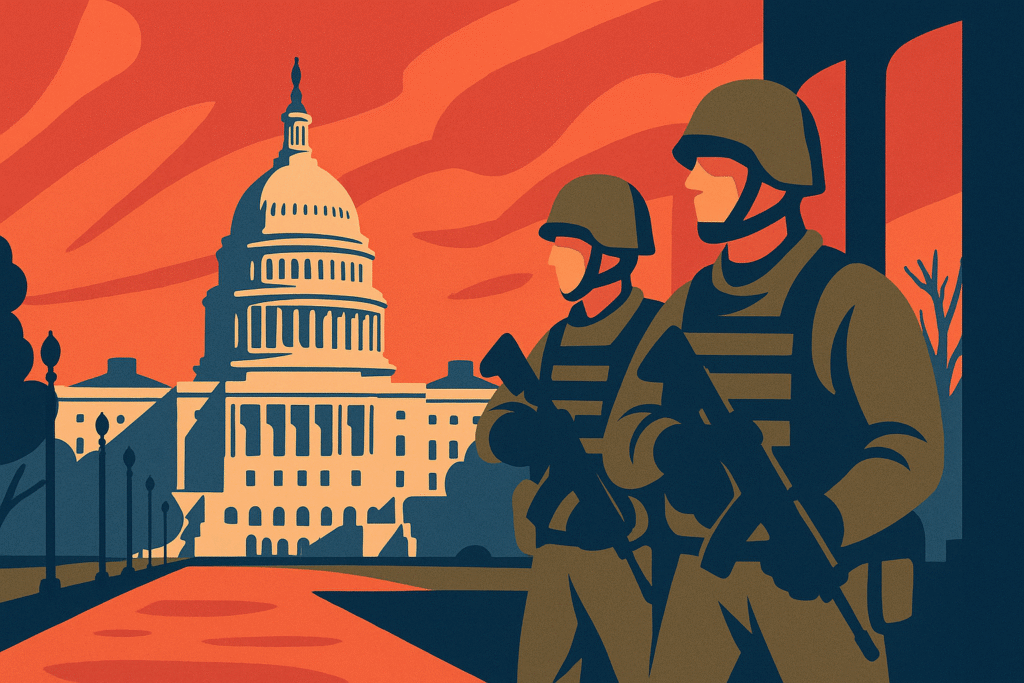The recent deployment of National Guard troops to the capital, ordered by President Donald Trump and supported by five Republican-led states, has ignited a debate over whether the move is a necessary security precaution or a politically motivated overreach.
Reinforcements from Republican Governors
Governors from Texas, Florida, Georgia, Alabama, and South Carolina approved the dispatch of National Guard units to Washington, citing the need to bolster federal security efforts. Supporters of the decision framed it as a show of unity with the federal government and a measure to safeguard key institutions.
One senior Republican official called the move “a responsible step to ensure the security of America’s capital at a time of uncertainty,” noting that troops have been deployed around major landmarks and government buildings.
Opposition from D.C. Leadership
Local officials in Washington have strongly criticized the scale of the deployment. Mayor Muriel Bowser argued that the arrival of troops in calm areas such as the National Mall, which has not been a hotspot for unrest, demonstrates that the move is more about political theater than genuine security needs.
“This is less about safety and more about appearances,” Bowser said, stressing that an oversized military presence risks alarming residents and visitors alike.
Political and Civil Rights Concerns
The decision has further strained relations between the Trump administration and Washington’s leadership, highlighting the city’s lack of statehood and limited autonomy. Critics contend that the highly visible deployment of troops is intended to signal strength rather than respond to actual threats.
Civil rights advocates added their voices, warning that the militarization of public spaces could erode public trust and foster a climate of intimidation.
Looking Ahead
The Pentagon has emphasized that the National Guard mission is temporary and intended to support law enforcement operations. Still, no timeline has been provided for when troops will return home, leaving residents uncertain about how long the heightened security posture will remain.
For now, Washington finds itself at the center of a larger political struggle — caught between a federal government eager to project control and local leaders pushing back against what they see as unnecessary interference. The episode highlights ongoing national divisions over the role of the military in domestic affairs, as well as the balance between public safety and civil liberties in the capital.



